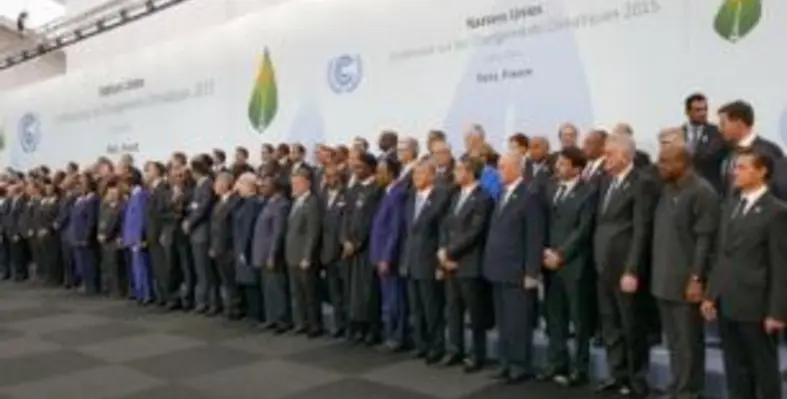The bond is targeted at achieving a greener economy and reducing emissions as the world unites to fight climate change
Nigeria is set to float its first ever, Green Bond to fund a pipeline of projects targeted at a greener economy in the first quarter of 2017, President Muhammadu Buhari said on Thursday in New York, while signing the Paris Agreement.
“We are set to launch our first ever Green Bonds in the first quarter of 2017 to fund a pipeline of projects all targeted at reducing emissions towards a greener economy,” President Buhari said at a meeting on Taking Climate Action for Sustainable Development in New York, co-hosted by Nigeria and the United Nations Environment Programme (UNEP) on the sidelines of the 71st Session of the United Nations General Assembly (UNGA).
The Nigerian President said his country’s commitment to the Paris Agreement is articulated through its Nationally Determined Contributions (NDCs) “ensuring a strong cross-sectoral approach, coherence and synergy for Climate Action.”
Admitting the challenges in the implementation of the Roadmap in the face of dwindling national revenues, the President said both internal and external resources would be mobilized to meet Nigeria’s targets, adding that the 2017 Budget will reflect Nigeria’s efforts to accord priority to realizing its NDCs.
Nigeria, joined other African countries like Niger in the league of countries to sign the Paris agreement. The Paris agreement which comes into full force in 2020 sets out a global action plan for governments of the world over to avoid dangerous climate change by limiting global warming to well below 2°C above pre-industrial levels; limit the increase of 1.5°C to reduce risks and impacts of climate change, amongst others.
Signing the agreement the President promised to see to the ratification of the Paris Agreement before the 22nd Conference of Parties to the UN Framework Convention on Climate Change in Marrakesh, Morocco which comes up in November 2016.
Calling for global support to transit to a low-carbon climate resilient economy, the President specifically reminded industrialized nations “to play their role and deliver on commitments on access to climate finance and technology transfer and help with capacity-building,” adding that, “Expectations are high for their leaders to deliver US$100 bn per year by 2020 in support of developing countries to take climate action, thus keeping the promise to billions of people.”
President Buhari, who thanked the President of Niger for attending the event, called on the international community to “give special recognition to the plight of Lake Chad and support government’s effort to resuscitate the livelihoods of over 5 million people in the region.
This will reinforce our efforts to reintegrate the thousands of Boko Haram victims and returning Internally Displaced Persons (IDPs).”
The President noted that the Niger Delta region is a unique biodiversity rich in coastal environment that is highly prone to adverse environmental changes occasioned by climate change, such as sea-level rise, coastal erosion, exacerbated by poverty and many decades of oil pollution leading to loss of livelihoods and ecosystems.
He added, however, that “through an integrated approach, implementation of the NDCs, and our efforts to clean up Ogoniland, we will improve livelihoods, protect the environment and take climate action, and ensure the implementation of the Sustainable Development Goals (SDGs).”
President Mahamadou Issoufou of Niger, who sat in as a special invitee of the President said his country has since started off processes to ratify the agreement as well as mitigations and regulations that will see that the reduction of carbon.
He charged other African countries to mobilise all other stakeholders and fight climate change to reduce the harmful effects of on the world.
Panelists at the side event respectively commended Nigeria’s move in the clean-up of the Ogoni oil spill, noting that this would be the biggest clean-up ever in the world.
Nigeria’s minister of environment Amina Mohammed also noted that the Paris agreement could only be successful when all strata of the society join hands to work towards a healthy global environment.












